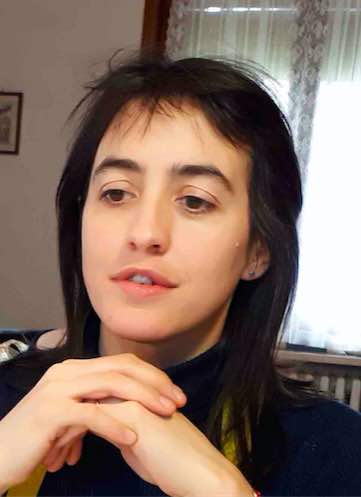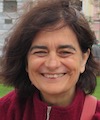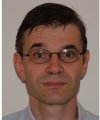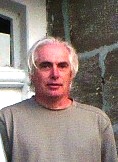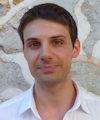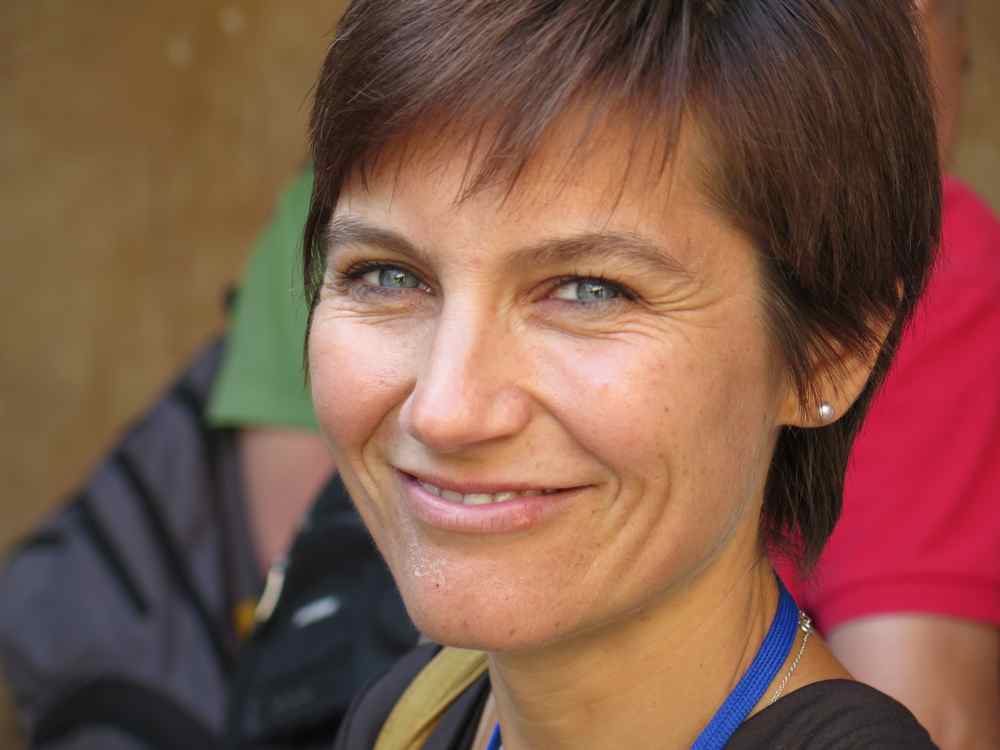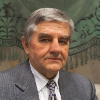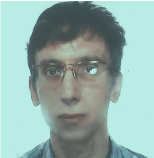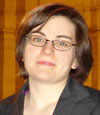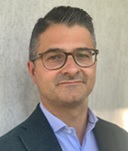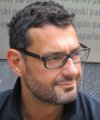Studying at the University of Verona
Here you can find information on the organisational aspects of the Programme, lecture timetables, learning activities and useful contact details for your time at the University, from enrolment to graduation.
Academic calendar
The academic calendar shows the deadlines and scheduled events that are relevant to students, teaching and technical-administrative staff of the University. Public holidays and University closures are also indicated. The academic year normally begins on 1 October each year and ends on 30 September of the following year.
Course calendar
The Academic Calendar sets out the degree programme lecture and exam timetables, as well as the relevant university closure dates..
| Period | From | To |
|---|---|---|
| I - II semestre | Oct 2, 2017 | Jun 15, 2018 |
| I sem. | Oct 2, 2017 | Jan 31, 2018 |
| II sem. | Mar 1, 2018 | Jun 15, 2018 |
| Session | From | To |
|---|---|---|
| Sessione invernale d'esami | Feb 1, 2018 | Feb 28, 2018 |
| Sessione estiva d'esame | Jun 18, 2018 | Jul 31, 2018 |
| Sessione autunnale d'esame | Sep 3, 2018 | Sep 28, 2018 |
| Session | From | To |
|---|---|---|
| Sessione di laurea estiva | Jul 23, 2018 | Jul 23, 2018 |
| Sessione di laurea autunnale | Oct 17, 2018 | Oct 17, 2018 |
| Sessione autunnale di laurea | Nov 23, 2018 | Nov 23, 2018 |
| Sessione di laurea invernale | Mar 22, 2019 | Mar 22, 2019 |
| Period | From | To |
|---|---|---|
| Christmas break | Dec 22, 2017 | Jan 7, 2018 |
| Easter break | Mar 30, 2018 | Apr 3, 2018 |
| Patron Saint Day | May 21, 2018 | May 21, 2018 |
| VACANZE ESTIVE | Aug 6, 2018 | Aug 19, 2018 |
Exam calendar
Exam dates and rounds are managed by the relevant Science and Engineering Teaching and Student Services Unit.
To view all the exam sessions available, please use the Exam dashboard on ESSE3.
If you forgot your login details or have problems logging in, please contact the relevant IT HelpDesk, or check the login details recovery web page.
Should you have any doubts or questions, please check the Enrollment FAQs
Academic staff
 alberto.benvegnu@univr.it
alberto.benvegnu@univr.it
 maurizio.boscaini@univr.it
maurizio.boscaini@univr.it
 federico.busato@univr.it
federico.busato@univr.it
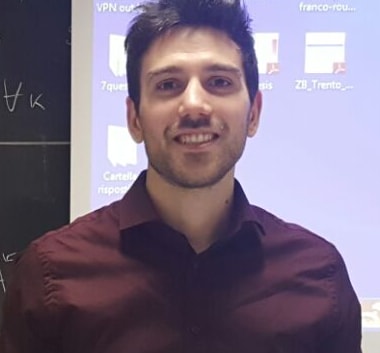
Cordoni Francesco Giuseppe
 francescogiuseppe.cordoni@univr.it
francescogiuseppe.cordoni@univr.it
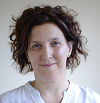
Magazzini Laura
 laura.magazzini@univr.it
laura.magazzini@univr.it
 045 8028525
045 8028525
 gino.mariotto@univr.it
gino.mariotto@univr.it

Mazzuoccolo Giuseppe
 giuseppe.mazzuoccolo@univr.it
giuseppe.mazzuoccolo@univr.it
 +39 0458027838
+39 0458027838
Zini Giovanni
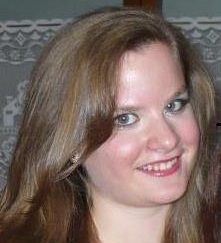
Zoppello Marta
 simone.zuccher@univr.it
simone.zuccher@univr.it
Study Plan
The Study Plan includes all modules, teaching and learning activities that each student will need to undertake during their time at the University.
Please select your Study Plan based on your enrollment year.
1° Year
| Modules | Credits | TAF | SSD |
|---|
2° Year activated in the A.Y. 2018/2019
| Modules | Credits | TAF | SSD |
|---|
3° Year activated in the A.Y. 2019/2020
| Modules | Credits | TAF | SSD |
|---|
| Modules | Credits | TAF | SSD |
|---|
| Modules | Credits | TAF | SSD |
|---|
| Modules | Credits | TAF | SSD |
|---|
| Modules | Credits | TAF | SSD |
|---|
Legend | Type of training activity (TTA)
TAF (Type of Educational Activity) All courses and activities are classified into different types of educational activities, indicated by a letter.
Macroeconomics (2018/2019)
Teaching code
4S00242
Teacher
Coordinator
Credits
6
Language
Italian
Scientific Disciplinary Sector (SSD)
SECS-P/01 - ECONOMICS
Period
II semestre dal Mar 4, 2019 al Jun 14, 2019.
Learning outcomes
This course aims to inquiry how the economy works, by studying its main aggregate variables: GNP, or Gross National Product, value added, incomes, aggregate consumption, investment, taxes and public expenditure, labour participation, rate of (un)employment, general level of prices, as well as quantity of money and rate of interest.
These variables will be investigated using formal theories and empirical analysis, the latter based on World Bank data. They will refer to three main markets.
First, the market of goods, that will be studied both from the demand and the supply side.
Second, the monetary and financial market, with particular attention to the forces behind the determination of the rate of interest.
Third, the labour market, by focusing on the causes of the rate of unemployment and on the relation between full employment and prices.
The time frame of such an investigation will both refer to both the short and long run, with a stress on the interdependence between the various described markets, and the role of the state with its policy in correcting their pitfalls.
The main macroeconomic theories will be presented with a mix of descriptive, Cartesian and formal mathematical language. Some effort will be devoted to methodological issues. In particular with reference to a) the history of economic thought, so to better assess the origins (and limits) of present macroeconomic theories; and to b) the different approach in studying reality, between natural sciences (such as physics) and social sciences (such as economics).
At the end of course, students should be able to employ the analytical tools to inquiry macroeconomic issues. In particular on how the aggregate theories of demand and supply allow to understand and interpret the mechanisms and the evolution of economic systems. Students are trained to collect and process statistical data, coming from international organizations, so they can picture out the actual economic conditions of various countries. They will be able to do that, both by using cross-section and time series data. Finally, students should be able to assess the impact on the economy, in the attempt to improve it, of the various interventions of economic policy made by fiscal and monetary authorities.
Program
1. Natural and Social sciences: Macroeconomics in the History of Economic Thought
2. National Accounts and empirical macroeconomic evidence
3. The market of goods
4. The financial and monetary market
5. The IS-LM model
6. Macroeconomics and Economic Policy
7. Economic growth
8. The accumulation of capital and the instability of capitalism
9. The labour market
10. The AD-AS equilibrium model and the relation Unemployment-inflation
11. The open economy (in short)
12. The role of expectations (in short)
References:
Blanchard O., Amighini A., Giavazzi F., Macroeconomia, Il Mulino, 2014 or 2011. Part II, III, IV in full. Part V e VI in brief. There is a new edition 2016, which is not yet combined with its own exercise book. Students that follow the course will get access to notes, exercises and further reading list in preparation of the exam.
Findlay D.W. Esercizi di Macroeconomia. Guida allo studio del testo di Olivier Blanchard, Il Mulino, 2011 or 2015 (for Blanchard edition 2014).
There is also a short-cut version of the textbook: Blanchard O. Scoprire la macroeconmia, Il Mulino, 2011.
| Author | Title | Publishing house | Year | ISBN | Notes |
|---|---|---|---|---|---|
| Findlay, David W | Esercizi di Macroeconomia. Guida allo studio del testo di Olivier Blanchard, Alessia Amighini, Francesco Giavazzi | Il Mulino | 2017 | 9788815272003 | |
| OLIVIER BLANCHARD, ALESSIA AMIGHINI, FRANCESCO GIAVAZZI | Macroeconomia. Una prospettiva europea | Il Mulino | 2016 | 978-88-15-26571-5 |
Examination Methods
Final examination: Written exam with multiple-choice test and mathematical exercises. It will be followed by a short oral examination. The latter becomes an option for those students that follow the lectures and hand in the assignments given weekly during the course. In this case the student gains a bonus of a maximum of 10% of the mark of the final examination.
Type D and Type F activities
Modules not yet included
Career prospects
Module/Programme news
News for students
There you will find information, resources and services useful during your time at the University (Student’s exam record, your study plan on ESSE3, Distance Learning courses, university email account, office forms, administrative procedures, etc.). You can log into MyUnivr with your GIA login details: only in this way will you be able to receive notification of all the notices from your teachers and your secretariat via email and soon also via the Univr app.
Graduation
Documents
| Title | Info File |
|---|---|
|
|
pdf, it, 31 KB, 29/07/21 |
|
|
pdf, it, 31 KB, 29/07/21 |
|
|
pdf, it, 171 KB, 20/03/24 |
List of theses and work experience proposals
| theses proposals | Research area |
|---|---|
| Formule di rappresentazione per gradienti generalizzati | Mathematics - Analysis |
| Formule di rappresentazione per gradienti generalizzati | Mathematics - Mathematics |
| Proposte Tesi A. Gnoatto | Various topics |
| Mathematics Bachelor and Master thesis titles | Various topics |
| THESIS_1: Sensors and Actuators for Applications in Micro-Robotics and Robotic Surgery | Various topics |
| THESIS_2: Force Feedback and Haptics in the Da Vinci Robot: study, analysis, and future perspectives | Various topics |
| THESIS_3: Cable-Driven Systems in the Da Vinci Robotic Tools: study, analysis and optimization | Various topics |
| Stage | Research area |
|---|---|
| Internship proposals for students in mathematics | Various topics |
Attendance
As stated in the Teaching Regulations for the A.Y. 2022/2023, except for specific practical or lab activities, attendance is not mandatory. Regarding these activities, please see the web page of each module for information on the number of hours that must be attended on-site.
Career management
Student login and resources
Erasmus+ and other experiences abroad
Commissione tutor
La commissione ha il compito di guidare le studentesse e gli studenti durante l'intero percorso di studi, di orientarli nella scelta dei percorsi formativi, di renderli attivamente partecipi del processo formativo e di contribuire al superamento di eventuali difficoltà individuali.
E' composta dai proff. Sisto Baldo, Marco Caliari, Francesca Mantese, Giandomenico Orlandi e Nicola Sansonetto
